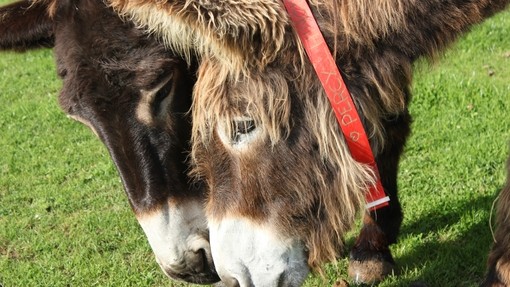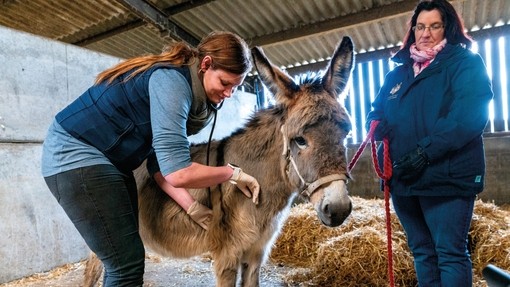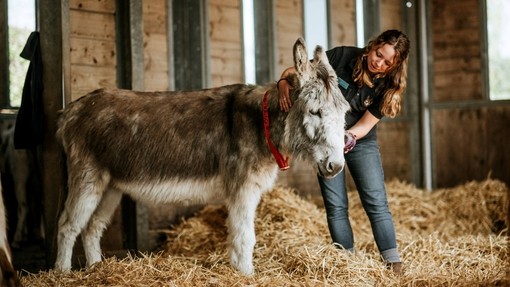Essential equipment
The following equipment costs are approximate and may vary from supplier to supplier.
- Electric fencing energiser: £90 to £200
- Plastic 90 cm fencing stakes (based on one square acre that has solid fencing around the perimeter), 15 posts if field is square: £35
- Electric fencing tape (200 metre roll): £24
- Internal batteries: £12 each
- Stable wheelbarrow: £50 to £200
- Fork: £20
- Shovel: £20
- Yard broom: £10
- Poop scoop and rake: £15
- Head collar and rope: £20
- Grooming kit (dandy brush, body brush, plastic curry comb, hoof pick, tray/basket, cotton swabs, sponges, scissors): £25
- Buckets (minimum of two): £10
Costs of ongoing care per donkey per year
The costs for ongoing care are approximate and based on a healthy donkey in good body condition with access to sufficient nutritional grazing during summer and ad-lib barley straw, and adequate hay or haylage in the winter. Veterinary costs shown are only for annual checks and vaccinations.
Please be aware that any veterinary treatment for health problems can sometimes cost between hundreds and thousands of pounds. Therefore, appropriate veterinary insurance is something that donkey owners should consider.
- Vet call out and exam fee per visit: £40 to £80
- Flu/Tetanus (Frequency of vaccination depends on multiple factors, including manufacturer’s instructions for the product used): £30 to £45 per vaccine.
- Dental check (At least once a year, but may be more frequent): £50 to £70
- Annual faecal count (Guardian owners can speak to a Donkey Welfare Adviser about access to our lab services) 2-4 times per year: £16 to £40
- Worming (assuming three per year based on 200 kg donkey): £12 to £30
- Farrier (average eight-weekly trim): £160 to £260
- Insurance (third party liability only): £40 to £100
- Hay if donkey off grazing in winter (one bale per week for 26 weeks): £104 to £182
- Straw for feed and bedding (100 bales per donkey per year): £400 to £600
The average cost of keeping a pair of donkeys could be in the region of £1,600 per year.
General information
The number of times per year that your donkey needs to be wormed and which drug should be used will depend on the donkey owner’s land management system, other animals kept and results of a faecal count. Consultation with your vet is strongly recommended.
Elderly donkeys, those with dental problems, donkeys that may need extra feed or those with respiratory problems, may require different bedding and/or feed which can often be more costly.




